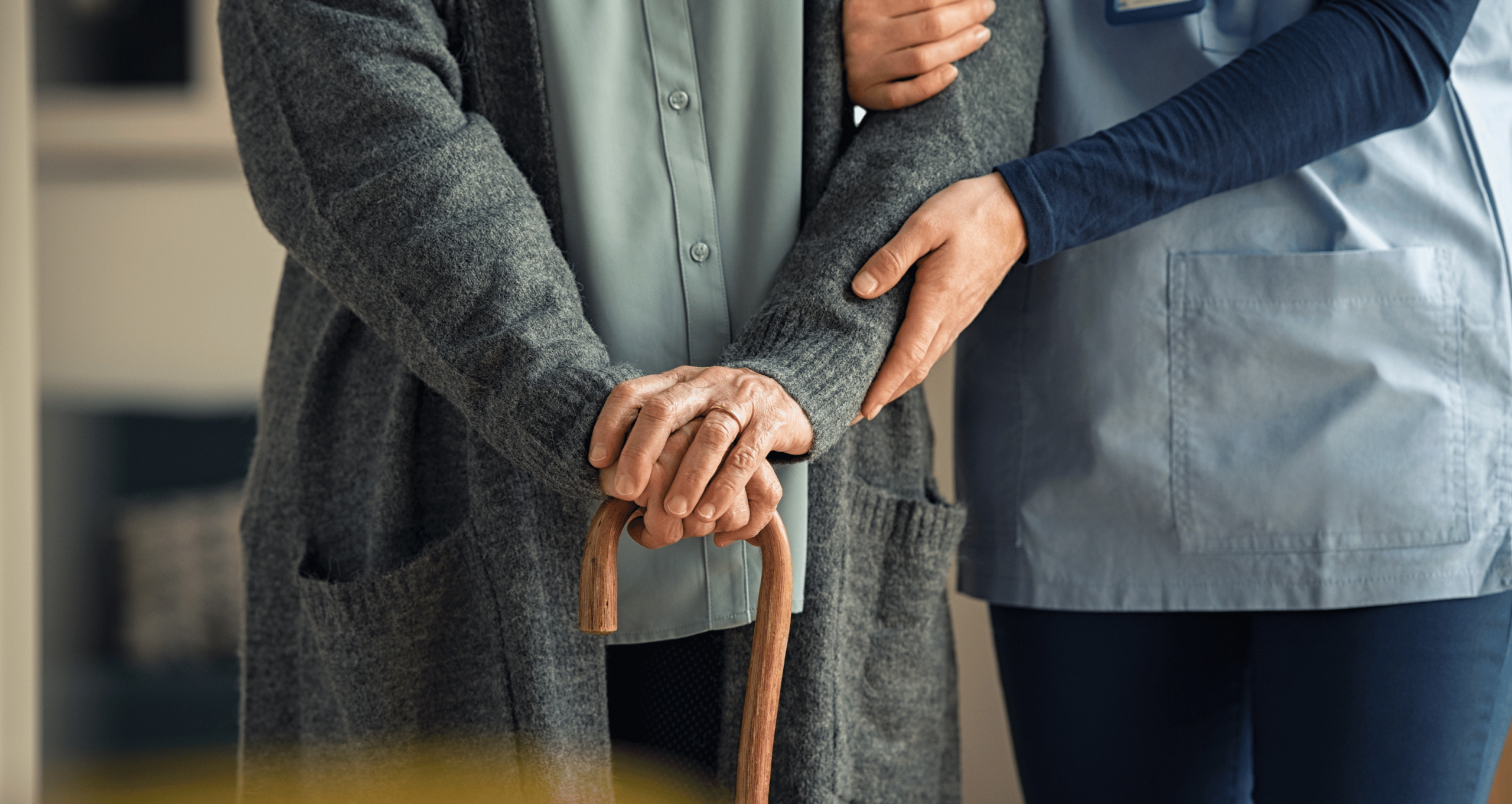Today we honor millions of people who make an extraordinary difference in the lives of others. Caregiving, both professional and unpaid, is a line of work that has a long and often unrecognized history of providing a better quality of life for older adults, people with disabilities and many others.
Caregivers are heroes—selflessly providing care, often at the expense of their own well-being. It is a rarely talked-about role that is not typically highlighted as a career option to young people, yet is a critical profession caring for the lives of millions of people. There are more than 4 million caregivers who provide direct care in homes and hospitals, and another 55 million people in America who are unpaid caregivers providing care for family or friends.
The role of caregiving is especially important in rural communities where limited resources and isolation for older adults is more acute. For years, our network has leveraged the long-standing commitment of Lutheran social ministries in these communities to expand services for older adults and family caregivers.
As we commemorate National Caregivers Day, it’s important to recognize the complicated journey of caregiving: a role that is incredibly gratifying and simultaneously arduous, especially for those who take on the job alone.
The Personal Challenge of Caregiving
Caring for an older adult has unique challenges and requires significant time, energy and finances from family caregivers. More than 60 percent of family caregivers help older adults with activities of daily living (ADLs), including getting in and out of beds and chairs, bathing, feeding and getting dressed. Nearly all family caregivers also support older adults with instrumental activities of daily living (IADLs), including providing transportation, ordering groceries, performing housework, preparing meals, managing finances and the like. According to the Gallup-Healthways Well-Being Index, most caregivers provide these services to one individual, but 18 percent do so for two or more.
Despite assisting with a number of these tasks, the majority of family caregivers admit they need more instruction, including how to keep their care recipient safe at home, manage their stress and identify eligible supports and services. That is a tall order for one person and many family caregivers often assume their role unexpectedly or suddenly.
That was my experience as well. After my mother suffered a stroke, my family and I were immediately thrust into the role of caregivers. It was incredibly difficult to watch my mother, a top C-suite executive, trailblazer in her industry and the smartest person I knew, no longer able to grab a spoon or remember her birthdate. Like many caregivers, I felt overwhelmed by this “new normal” of helping my mother with daily tasks.
Thankfully, my family and I were not alone—we were helped by countless compassionate caregivers who cared for Mom and brought out her smile again. I felt tremendous hope thanks to the caring conversations and whole-person approach from these caregivers. Each day reminded me of the critical importance of our work at Lutheran Services in America. I am truly honored to raise the visibility of caregiver heroes across our nationwide network who support families like mine and individuals like my mother.
Support Makes All the Difference
I know how much of an enormous task caregiving can be on a single person. If there is one thing caregivers should know is that they do not need to go it alone. Support and resources are available to help tackle these seismic responsibilities. Two-thirds of the Lutheran Services in America network are dedicated to caring for older adults, addressing their critical needs and enabling them to lead their best lives.
Lutheran social ministry organizations have developed new ways to support caregivers during these challenging times. Lutheran Social Service of Minnesota, for example, offers coaching and counseling to help family caregivers not only develop their caregiving skills but also find resources and practice self-care to maintain a healthy and balanced lifestyle. Samaritas in Michigan and Bethany Village in Kansas are leveraging technology to connect loved ones to caregivers living out of state.
Through our Rural Aging Action Network, Lutheran Services in America unites our member organizations to respond to the increasing number of older adults in rural communities who experience social isolation and difficulty accessing services and supports to successfully age at home. Together, we’re using the unique assets in these communities to address key barriers to care that older adults and caregivers face.
Service providers are doing what they can to bring on as many caregivers as possible during a historic workforce staffing crisis. I ask you to join our network in advocating solutions that support the caregiving community and protect access for all.
As one in four families has experienced, caregiving is more than supplying individuals with basic necessities. It restores the dignity and sense of self-worth of our loved ones during the toughest moments of our lives. As we fulfill our commitment to empower our communities, we cannot forget the sacrifice of many of the caregivers who selflessly come along for the journey.
Ashley Washington is Director of Aging Initiatives at Lutheran Services in America.
